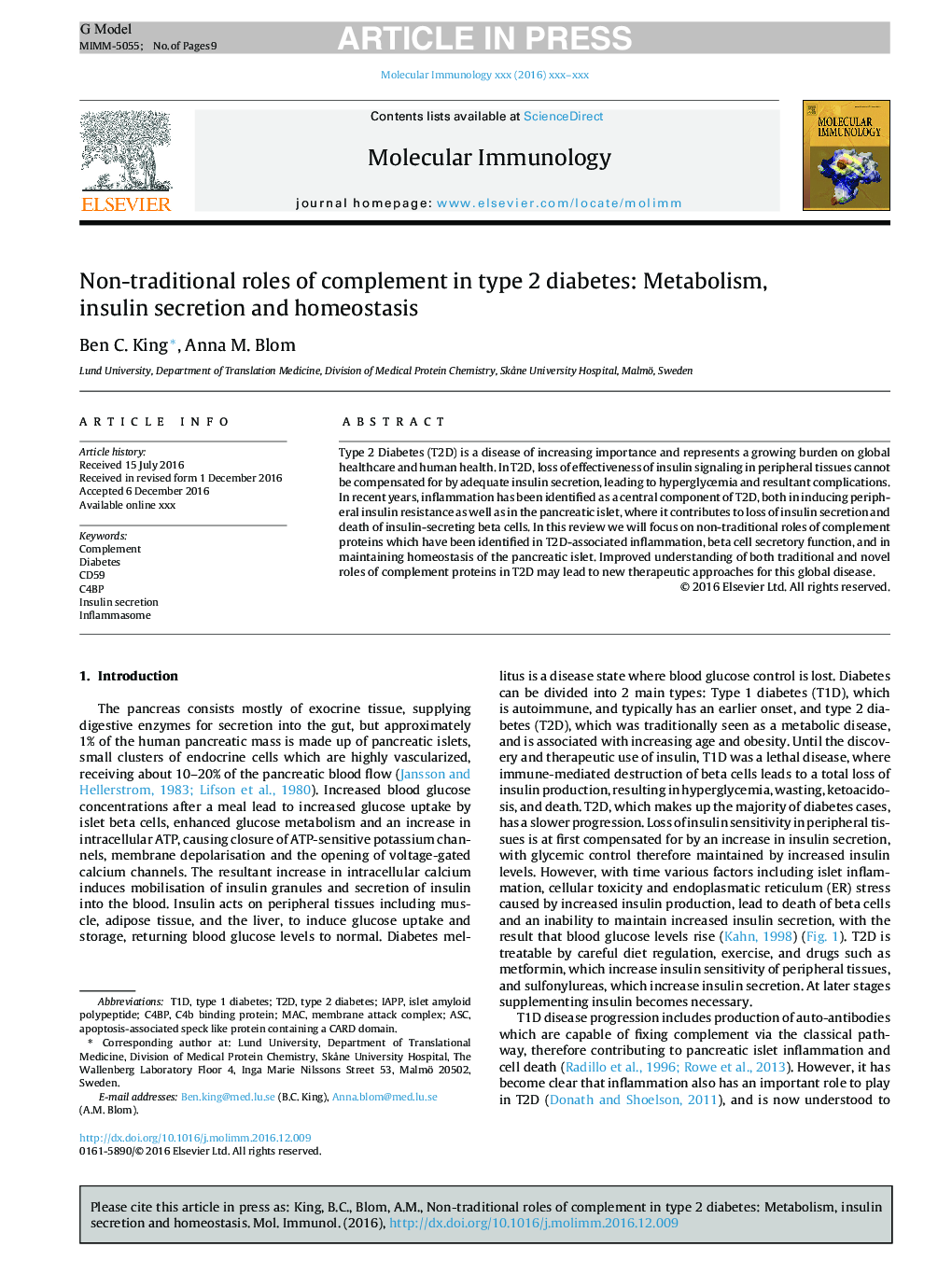| Article ID | Journal | Published Year | Pages | File Type |
|---|---|---|---|---|
| 5591958 | Molecular Immunology | 2017 | 9 Pages |
Abstract
Type 2 Diabetes (T2D) is a disease of increasing importance and represents a growing burden on global healthcare and human health. In T2D, loss of effectiveness of insulin signaling in peripheral tissues cannot be compensated for by adequate insulin secretion, leading to hyperglycemia and resultant complications. In recent years, inflammation has been identified as a central component of T2D, both in inducing peripheral insulin resistance as well as in the pancreatic islet, where it contributes to loss of insulin secretion and death of insulin-secreting beta cells. In this review we will focus on non-traditional roles of complement proteins which have been identified in T2D-associated inflammation, beta cell secretory function, and in maintaining homeostasis of the pancreatic islet. Improved understanding of both traditional and novel roles of complement proteins in T2D may lead to new therapeutic approaches for this global disease.
Keywords
Related Topics
Life Sciences
Biochemistry, Genetics and Molecular Biology
Molecular Biology
Authors
Ben C. King, Anna M. Blom,
